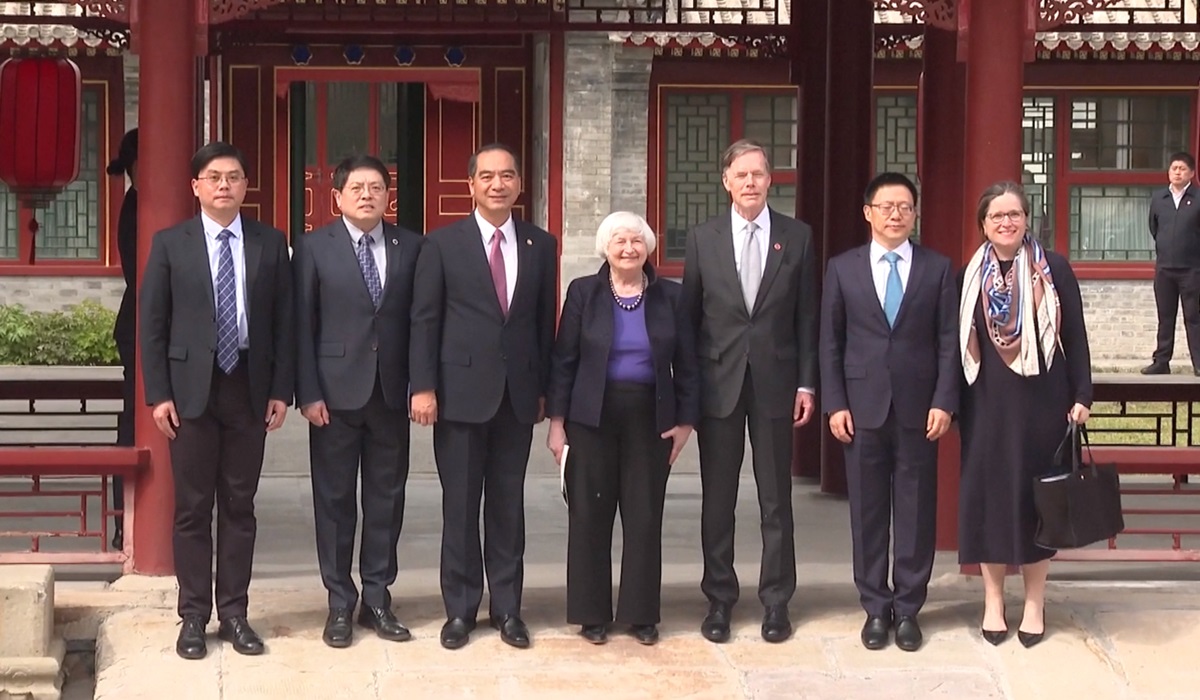Janet Yellen’s Visit to China: Storm in a Teacup or Genuine Concern?
- TDS News
- Trending
- April 7, 2024

US Secretary of State Janet Yellen’s current visit to China has sparked a flurry of speculation and controversy, particularly surrounding allegations that the purpose of her trip was to issue a stern warning to the Chinese government against assisting Russia in its war against Ukraine. However, before diving headfirst into these claims, it’s essential to address the numerous issues surrounding them.
First and foremost, these allegations are just that – allegations. They stem from unnamed sources, leaving their credibility questionable at best. Without concrete evidence or official statements, it’s challenging to ascertain the validity of such claims. Moreover, the notion that the US can dictate China’s foreign policy decisions is fraught with complexities, given the sovereign nature of nations and China’s historically non-aligned stance.
China has consistently reiterated its commitment to maintaining friendly relations with all nations, emphasizing the importance of respecting each other’s sovereignty. Therefore, the idea that Yellen’s visit was solely intended to strong-arm China into compliance seems oversimplified and lacking in nuance.
Furthermore, attributing the ongoing conflict in Ukraine solely to Russia overlooks the broader geopolitical dynamics at play. While Russia’s actions certainly warrant condemnation, it’s essential to acknowledge the role of other actors, including the US and NATO, in exacerbating tensions through their own geopolitical maneuvers.
Yellen’s purported warning to China about potential sanctions over its involvement in aiding Russia contrasts sharply with the simultaneous plea for Chinese investment in the US. This apparent contradiction underscores the complexity of US-China relations, which often oscillate between cooperation and confrontation.
On one hand, the US seeks to exert pressure on China through sanctions and diplomatic admonitions, while on the other, it relies on Chinese investment to sustain its economy. This delicate balance reflects the interdependence of the world’s two largest economies, highlighting the inherent complexities of contemporary geopolitics.
Moreover, the notion of the US being the self-appointed arbiter of global conflicts is increasingly contentious, particularly in light of its own involvement in various conflicts worldwide. From supplying arms to conflicting parties to engaging in covert operations, the US’s track record in foreign affairs is far from pristine.
While Janet Yellen’s visit to China may have been intended to address concerns about Chinese support for Russia, the reality is far more nuanced. Allegations of strong-arming and ultimatums overlook the complexities of international relations and the sovereignty of nations. Instead of resorting to accusations and threats, genuine dialogue and cooperation are needed to address the myriad challenges facing the international community. Only through mutual respect and understanding can lasting solutions be found to the world’s most pressing issues.








